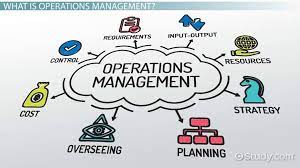Individual Decision Making: Understanding the Process
Individual decision making is a complex process that we all engage in on a daily basis. From choosing what to wear in the morning to making major life-changing decisions, understanding how we make choices is essential for personal growth and success.
There are several key factors that influence individual decision making:
- Values and Beliefs: Our personal values and beliefs play a significant role in shaping the decisions we make. These deeply held principles guide our choices and help us prioritize what is important to us.
- Emotions: Emotions can heavily influence our decision-making process. Whether it’s fear, excitement, or sadness, our emotions can impact the way we weigh different options and ultimately make a choice.
- Rationality: While emotions play a role, rational thinking also plays a crucial part in decision making. Evaluating pros and cons, considering risks, and analyzing potential outcomes are all part of the rational decision-making process.
- External Influences: External factors such as social norms, peer pressure, and cultural expectations can also shape our decisions. Being aware of these influences can help us make more informed choices that align with our values.
It’s important to recognize that individual decision making is a skill that can be honed and improved over time. By reflecting on past decisions, understanding your values, managing emotions, and seeking input from trusted sources, you can enhance your ability to make thoughtful and effective choices.
Remember, every decision you make has the power to shape your future. By taking a proactive approach to understanding the individual decision-making process, you can empower yourself to navigate life’s challenges with confidence and clarity.
Six Benefits of Individual Decision Making: Empowering Autonomy, Growth, and Confidence
- Empowers personal autonomy and independence.
- Allows for alignment with personal values and beliefs.
- Encourages self-reflection and growth.
- Fosters accountability for outcomes.
- Promotes self-confidence in decision-making abilities.
- Facilitates adaptability to changing circumstances.
Five Drawbacks of Individual Decision Making: Impulsivity, Fatigue, Limited Perspective, Emotional Bias, and Responsibility Stress
- Risk of making impulsive decisions without considering long-term consequences
- Potential for decision fatigue from having to make numerous choices throughout the day
- Limited perspective leading to overlooking important information or alternative solutions
- Emotional biases may cloud judgment and lead to irrational decision making
- Pressure of taking full responsibility for outcomes, which can be stressful and overwhelming
Empowers personal autonomy and independence.
Individual decision making empowers personal autonomy and independence by allowing individuals to take control of their own lives and make choices that align with their values and goals. When individuals have the freedom to make decisions independently, they can assert their individuality, exercise self-determination, and shape their own destinies. This sense of empowerment fosters a greater sense of ownership over one’s life path and encourages personal growth and development. Ultimately, by embracing individual decision making, individuals can cultivate a strong sense of self-reliance and confidently navigate through life’s challenges with a heightened sense of autonomy.
Allows for alignment with personal values and beliefs.
Individual decision making provides a valuable opportunity for individuals to align their choices with their personal values and beliefs. By considering what truly matters to them and making decisions that reflect those core principles, individuals can lead more authentic and fulfilling lives. This alignment fosters a sense of integrity and purpose, empowering individuals to make choices that resonate with who they are at their core. Ultimately, the ability to align decisions with personal values and beliefs enables individuals to live in accordance with their true selves, leading to greater satisfaction and fulfillment in both personal and professional endeavors.
Encourages self-reflection and growth.
Individual decision making encourages self-reflection and growth by giving individuals the opportunity to assess their values, beliefs, and priorities. When faced with a choice, individuals must introspect and consider what truly matters to them, leading to a deeper understanding of themselves. Through this process of self-reflection, individuals can identify areas for personal growth, challenge their assumptions, and learn from past decisions. Ultimately, individual decision making fosters personal development and empowers individuals to make choices that align with their authentic selves.
Fosters accountability for outcomes.
Individual decision making fosters accountability for outcomes by placing the responsibility squarely on the individual making the choice. When we make decisions independently, we are more likely to take ownership of the results, whether positive or negative. This accountability encourages personal growth and development as we learn from our decisions and their consequences. By embracing accountability for outcomes, individuals can cultivate a sense of empowerment and control over their lives, leading to greater self-awareness and resilience in the face of challenges.
Promotes self-confidence in decision-making abilities.
Individual decision making promotes self-confidence in decision-making abilities by allowing individuals to take ownership of their choices and outcomes. When individuals make decisions independently, they gain a sense of empowerment and self-assurance in their ability to navigate challenges and make informed choices. This self-confidence not only enhances their decision-making skills but also boosts their overall sense of autonomy and self-reliance, leading to personal growth and development.
Facilitates adaptability to changing circumstances.
Individual decision making facilitates adaptability to changing circumstances by empowering individuals to assess new information, evaluate alternative options, and make informed choices based on the current situation. This pro highlights the importance of being able to adjust one’s decisions in response to evolving conditions, allowing individuals to navigate unexpected challenges and seize opportunities as they arise. By honing their decision-making skills, individuals can effectively adapt to changing circumstances and steer their lives in the direction that best aligns with their goals and values.
Risk of making impulsive decisions without considering long-term consequences
One significant con of individual decision making is the risk of making impulsive decisions without considering long-term consequences. When individuals act on impulse, they may prioritize immediate gratification over long-term goals or outcomes. This can lead to regrettable choices that have lasting repercussions on their lives and well-being. Without careful consideration of the potential consequences, impulsive decisions may result in missed opportunities, financial instability, damaged relationships, or other negative impacts that could have been avoided with a more thoughtful and strategic approach to decision making.
Potential for decision fatigue from having to make numerous choices throughout the day
One significant drawback of individual decision making is the potential for decision fatigue that arises from having to make numerous choices throughout the day. Constantly having to weigh options, evaluate outcomes, and make decisions can be mentally draining and overwhelming. Decision fatigue can lead to reduced cognitive ability, increased stress levels, and a higher likelihood of making impulsive or poor choices as the day progresses. This can ultimately impact one’s overall well-being and productivity, highlighting the importance of managing decision-making processes effectively to prevent burnout and maintain mental clarity.
Limited perspective leading to overlooking important information or alternative solutions
One significant drawback of individual decision making is the inherent limitation of perspective, which can result in overlooking crucial information or alternative solutions. When making decisions alone, individuals may be confined to their own experiences, biases, and knowledge, potentially missing out on valuable insights or creative solutions that could have been identified through collaboration or seeking external input. This narrow focus can hinder the ability to consider all angles of a situation and may lead to suboptimal choices being made.
Emotional biases may cloud judgment and lead to irrational decision making
One significant con of individual decision making is that emotional biases have the potential to cloud judgment and result in irrational decision making. When emotions such as fear, anger, or excitement come into play, they can skew our perception of a situation and influence the choices we make. These biases may lead us to ignore logical reasoning and overlook important information, ultimately impacting the quality of our decisions. It is crucial to be aware of these emotional biases and take steps to mitigate their effects in order to make more rational and effective decisions.
Pressure of taking full responsibility for outcomes, which can be stressful and overwhelming
One significant drawback of individual decision making is the pressure of bearing full responsibility for the outcomes. This burden can be incredibly stressful and overwhelming, especially when faced with high-stakes decisions that have far-reaching consequences. The weight of knowing that the outcome, whether positive or negative, rests solely on one’s shoulders can lead to anxiety, self-doubt, and fear of making the wrong choice. This intense pressure to make the right decision can hinder one’s ability to think clearly and rationally, ultimately impacting the quality of the decision-making process.




